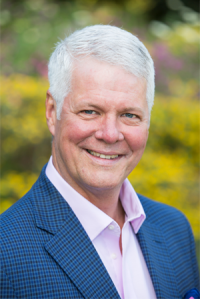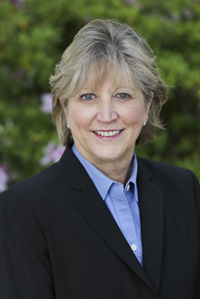The Markets
The vicious cycle of inflation.
Last week, we learned that pay increases at central banks in many parts of the world won’t keep pace with inflation. As a result, their employees may not be able to maintain the standards of living they had before inflation began rising. For example, at the United States Federal Reserve (Fed) the maximum pay increase was 5.1 percent for 2022. That’s significantly below inflation which averaged 8 percent last year, reported Jana Randow and Enda Curran of Bloomberg.
It’s a similar story elsewhere in the world. Inflation in the Eurozone averaged 10.6 percent in 2022, yet the average salary increase at the European Central Bank (ECB) and Bank of France was 4.0 percent. Germany’s Bundesbank offered a 1.8 percent raise. In the United Kingdom, where inflation was 9.1 percent on average last year the Bank of England offered a 4.5 percent annual pay increase.
Central banks have a reason for not raising pay enough to cover price increases. It’s called the wage-price spiral. The Richmond Federal Reserve explained it like this:
“In a wage-price spiral, inflation is fed by a vicious cycle where, as the cost of living rises, workers demand higher wages to pay their bills, leading firms to increase prices even further to cover labor costs.”
Since central banks are trying to reduce inflation, they want to avoid a wage-price spiral. Consequently, giving employees raises that don’t keep pace with inflation means that central banks are practicing what they preach.
Understandably, central bank employees are not happy about it. In January, a spokesperson for the ECB’s trade union told Bloomberg’s Alexander Weber, “‘With inflation in Germany and the euro area likely around 8.5% this year, it means a substantial loss in purchasing power.’”
Last week, data suggested that central banks’ efforts to push inflation lower are working. The Bureau of Economic Analysis reported the Personal Consumption Expenditures Index, which is one of the Fed’s preferred measures for inflation, dropped from 5.5 percent in November 2022 to 5.0 percent in December. The core PCE index, which excludes food and energy prices, fell from 4.7 percent year-over-year to 4.4 percent over the same period.
Investors were enthusiastic about the progress on inflation and major U.S. stock indices finished the week higher. The yield on the one-year U.S. Treasury ended the week at 4.68 percent.
| Data as of 1/27/23 | 1-Week | Y-T-D | 1-Year | 3-Year | 5-Year | 10-Year |
| Standard & Poor’s 500 Index | 2.5% | 6.0% | -5.9% | 7.9% | 7.4% | 10.5% |
| Dow Jones Global ex-U.S. Index | 1.4 | 8.6 | -6.8 | 1.0 | -1.1 | 2.1 |
| 10-year Treasury Note (yield only) | 3.5 | N/A | 1.8 | 1.6 | 2.7 | 2.0 |
| Gold (per ounce) | -0.1 | 6.1 | 6.4 | 6.8 | 7.4 | 1.5 |
| Bloomberg Commodity Index | -0.5 | -1.1 | 5.1 | 13.6 | 4.3 | -2.3 |
S&P 500, Dow Jones Global ex-US, Gold, Bloomberg Commodity Index returns exclude reinvested dividends (gold does not pay a dividend) and the three-, five-, and 10-year returns are annualized; and the 10-year Treasury Note is simply the yield at the close of the day on each of the historical time periods. Sources: Yahoo! Finance; MarketWatch; djindexes.com; U.S. Treasury; London Bullion Market Association. Past performance is no guarantee of future results. Indices are unmanaged and cannot be invested into directly. N/A means not applicable.
OH, TO BE 18 FOREVER.
You’re likely to live a lot longer than your great grandparents did. In 1900, average life expectancy at birth in the U.S. was about 47 years. It rose to 68 by 1950 and, in 2021, average life expectancy was about 76 years, reported Harvard Health.
Science is working to extend life expectancy further by looking for ways to reduce biological aging. Dr. Morgan Levine develops tools to measure biological aging, reported Zoë Corbyn of The Guardian.
“Most people’s biological age will be within plus or minus five years of their chronological age, but you can have outliers of up to 10 or more years. The wonderful thing, compared with chronological age, is that biological age is modifiable. We don’t yet know exactly how to modify it to the greatest extent, but the clock can be made to tick slower, or even possibly go backwards, in response to our behaviors (though it can also speed up),” reported Levine.
Bryan Johnson, a 45-year-old software entrepreneur, has his sights set on achieving a biological age of 18, reported Ashlee Vance of Bloomberg Businessweek. To that end, Johnson has enlisted a team of 30 doctors who are “committed to help reverse the aging process in every one of Johnson’s organs…” The endeavor is expected to cost Johnson about $2 million this year.
Regaining lost youth is a full-time job, according to the doctor who leads the team. In addition to following a specific diet, exercise, and sleep plan, Johnson, “endures dozens of medical procedures, some quite extreme and painful, then measures their results with additional blood tests, MRIs, ultrasounds and colonoscopies.” His medical team reports that, so far, he has reduced his biological age by at least five years.
We all have goals for the future. No matter what you want to accomplish, it’s important to have a financial plan that will support your progress. If you would like to talk about your plans for the future, get in touch.
Weekly Focus – Think About It
“There is no cure for birth and death save to enjoy the interval”
—George Santayana, philosopher
Sincerely,
Your Team at Wellspring Wealth
 |  |  |  |  |  |
| David Glover | Mark Winston | Dennis Wright | Andrew Wright | Valeri Bishop | Dan O’Rourke |
| AIF® | CFP®, AIF® | AEP®, ChFC®, CLU® | CFP®, AIF® | AIF® | CFP® |
Sources:
https://www.bloomberg.com/news/articles/2023-01-27/fed-ecb-pay-deals-how-central-banks-are-fighting-inflation-at-home (or go to https://resources.carsongroup.com/hubfs/WMC-Source/2023/01-30-23_Bloomberg_Global%20Central%20Banks%20Preaching%20on%20Pay%20Are%20Enforcing%20Squeeze%20Too_1.pdf)
https://www.richmondfed.org/research/national_economy/macro_minute/2022/mm_11_15_22
https://www.bloomberg.com/news/articles/2022-12-07/ecb-staff-union-not-happy-with-pay-hike-below-record-inflation (or go to https://resources.carsongroup.com/hubfs/WMC-Source/2023/01-30-23_Bloomberg_ECB%20Staff%20Union%20Not%20Happy%20With%20Pay%20Hike%20Below%20Record%20Inflation_3.pdf)
https://www.bea.gov/news/2023/personal-income-and-outlays-december-2022 [see table]
https://www.barrons.com/market-data?mod=BOL_TOPNAV (or go to https://resources.carsongroup.com/hubfs/WMC-Source/2023/01-30-23_Barrons_Data_5.pdf)
https://www.health.harvard.edu/blog/why-life-expectancy-in-the-us-is-falling-202210202835
https://www.bloomberg.com/news/features/2023-01-25/anti-aging-techniques-taken-to-extreme-by-bryan-johnson (or go to https://resources.carsongroup.com/hubfs/WMC-Source/2023/01-30-23_Businessweek_How%20to%20Be%2018%20Again%20For%20Only%202%20Million%20a%20Year_9.pdf)
